Rhino is synonymous with high-quality reissues, pioneering the catalog business with award-winning audio releases for the past 45 years. The legendary label is setting the standard once again with the launch of the exclusive premium vinyl series, Rhino High Fidelity (Rhino Hi-Fi). These high-end, limited-edition vinyl reissues of classic albums represent the pinnacle of sound and packaging.
The first two Rhino High Fidelity albums are available today exclusively at Rhino.com – The Cars (1978) by The Cars and Coltrane’s Sound (1964) by John Coltrane. Each Rhino High Fidelity title is limited to 5,000 individually numbered copies and retails for $39.98.
To ensure consistent sonic excellence, Kevin Gray will cut lacquers for all Rhino Hi-Fi releases, and Optimal will press the 180-gram vinyl records. The releases boast high-quality glossy covers and “tip-on” jackets, an old-school aesthetic that evokes the golden age of vinyl.
Kevin Gray says, “It will be an honor to master this series! There is so much variety to explore in the Rhino catalog – everything from Jazz to Rock to R&B. Rhino has a very deep catalog spanning across 5 decades. The possibilities are incredible! I look forward to all of it.”

Another hallmark of the new Rhino High Fidelity series is exclusive content. The Cars features a new interview with guitarist Elliot Easton about the gear used on the album, plus producer Roy Thomas Baker’s tracking notes for “Good Times Roll.”
Upon hearing the Rhino High Fidelity pressing, Easton said, “It’s like being in your studios. It’s like listening to a studio playback… It just blew my mind.” He then reflected on the making of the album, “We felt like we were doing something that hadn’t been done before, like we were breaking some ground and making some sounds that hadn’t been recorded before. That was very exciting. It was just completely the chemistry of the five of us. It’s nothing you can calculate or plan. It just either happens or doesn’t. It’s magic.”

Coltrane’s Sound includes notes and images from the master tapes along with an archival essay by legendary producer Tom Dowd, the recording engineer on this album, and hundreds of other classics on Atlantic Records.
Dowd recalled “It was amazing, even after an hour of solid playing [Coltrane] would be as calm and composed as when he first started. Normally when someone works this hard, they tense up. Not John. As I observed him playing, I could not detect any of the joints of his hands or fingers. He didn’t seem to have any bones. He played with “feathers.” His technique involved complete confidence, control, and composure.”
Rhino High Fidelity will take full advantage of Warner Music’s vast music catalog, creating superlative versions of landmark albums from the worlds of jazz, blues, rock, pop, and beyond.
The Rhino High Fidelity series will continue to release two classic albums quarterly, each with the same audio and packaging quality of the initial pair in strictly limited editions. The next round of Rhino High Fidelity releases will be announced in the coming weeks.
Where to buy: $38.98 at store.rhino.com
Related reading:






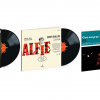
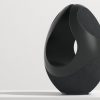

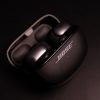





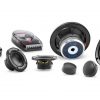









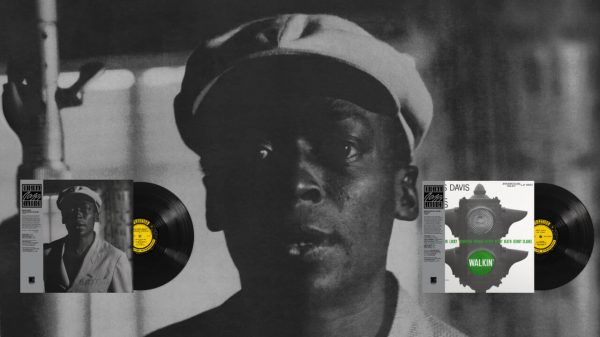
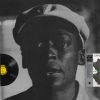


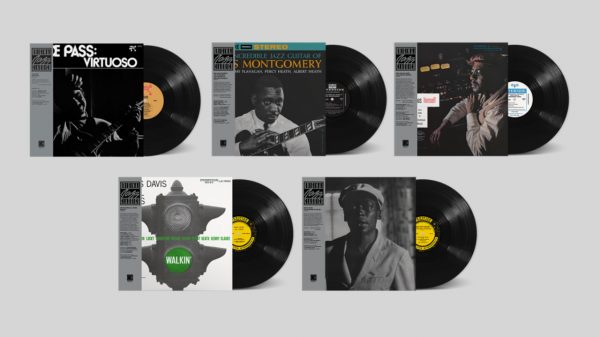
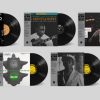
















Ort
May 21, 2023 at 8:42 pm
If I can not immediately hear the song in the music I am not going to sit there and wait for someone to stuff the musical version of a Babelfish in my ear. I am taking my towel and heading out. Why?
Because if I have to listen so “carefully” so as to figger out the title of the song then said tune has been muderlized by the same (purported) musician that was supposed to play it.
Coleman is guilty.
I am going to watch and listen to “The Three Little Bops” now. At least the Big Bad Wolf got it. “You gotta be hot to play real cool!
“Hot” is not irreverent.
For me Coleman’s finest is “John Coleman and Johnny Hartman”. Because two giants working together is a lot better than the Sax just blowing Scales and the vocalist spitting Scat.
I am no “Music Critic”, just some one that knows what I like and willing to point out the Emperor’s New Record”.
I would say more but in my mind that would be like me blowing scales or (*SHUDDER*) Scatting, i.e., neither needed nor wanted.
d’ORTagnan 😉